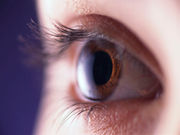Reduces the worsening of inflammatory measures; significantly lowers risk of uveitic flare
THURSDAY, Sept. 8, 2016 (HealthDay News) — Patients with noninfectious uveitis may benefit from adalimumab (Humira), according to a study published in the Sept. 8 issue of the New England Journal of Medicine.
For this phase 3 trial, Glenn Jaffe, M.D., a professor of ophthalmology at the Duke University School of Medicine in Durham, N.C., and colleagues randomly assigned 217 patients with active noninfectious intermediate uveitis, posterior uveitis, or panuveitis (despite having received prednisone treatment for two or more weeks) to adalimumab or placebo. Patients given the drug received an initial dose of 80 mg followed by 40 mg every two weeks. Patients were also given an initial dose of prednisone, which was decreased over 15 weeks.
The researchers found that patients receiving adalimumab were less likely to experience uveitic flare than those on placebo. Among those taking adalimumab, the average time to a flare was 24 weeks, compared with 13 weeks for those taking the placebo. In addition, those taking adalimumab also had significantly less visual impairment than those taking placebo.
“Treatment with adalimumab effectively achieved early and sustained disease control after discontinuation of glucocorticoid treatment by both markedly reducing inflammation and decreasing visual impairment in patients with active noninfectious intermediate uveitis, posterior uveitis, or panuveitis,” the authors write. “Adalimumab reduced the worsening of several clinically relevant inflammatory measures and significantly lowered the risk of uveitic flare or visual impairment.”
The study was funded by AbbVie, the manufacturer of adalimumab. Jaffe disclosed working as a consultant for AbbVie.
Full Text (subscription or payment may be required)
Copyright © 2016 HealthDay. All rights reserved.








